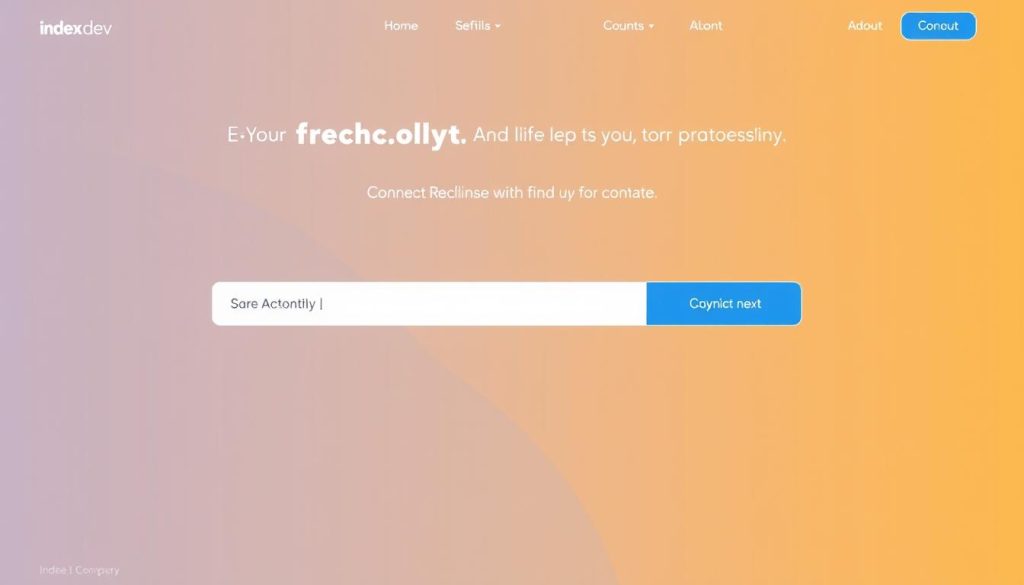The landscape of professional opportunities is evolving rapidly, with independent professionals increasingly turning to contract work to build stable careers.
This shift is driven by the unique advantages that contract work offers, including flexibility, diverse project experiences, and often higher compensation rates compared to permanent positions.
As an independent professional, understanding the fundamentals of securing and maintaining contract work is essential for navigating this growing segment of the job market and leveraging your skills effectively.
Table of Contents
Key Takeaways
- Understand the different types of contract arrangements available to independent professionals.
- Identify industry trends that impact contract work opportunities.
- Develop strategies for finding and securing contract work.
- Build a sustainable career as an independent professional.
- Navigate the unique contract structures in the French employment market.
Understanding Contract Work: Types and Definitions
As the job market evolves, understanding contract work is crucial for independent professionals. Contract work encompasses a variety of arrangements that allow individuals to work on a project or time-specific basis.
What Is Contract Work?
Contract work refers to employment arrangements where individuals are hired for a specific period or project. This type of work is often characterized by its temporary nature, although it can sometimes lead to permanent employment opportunities. Contracts can vary significantly in their terms and conditions.
Types of Contract Work Arrangements
There are several types of contract work arrangements that professionals may encounter. These include:
- Fixed-Term Contracts: These are agreements that last for a specified period.
- Rolling Contracts: These contracts continue until either party decides to terminate them, often with a notice period.
- Contract-to-Hire Positions: These are temporary positions that may lead to permanent employment.
Fixed-Term Contracts
Fixed-term contracts are used when there is a specific need for a certain period. They provide clarity on the duration of employment.
Rolling Contracts
Rolling contracts offer flexibility as they can be adjusted or terminated with notice. They are useful for ongoing projects that don’t have a fixed end date.
Contract-to-Hire Positions
Contract-to-hire positions allow both employers and employees to assess compatibility before committing to a long-term employment arrangement. Key aspects of contract-to-hire positions include:
- They begin as temporary arrangements but may convert to permanent employment.
- This arrangement enables both parties to evaluate the working relationship.
- The transition to permanent status typically occurs after an evaluation period, usually 3-6 months.
- Not all contract-to-hire positions result in permanent offers, so professionals should continue to explore other opportunities.
The Rise of Contract Work in Today’s Economy
The gig economy is transforming the way companies operate, with contract work becoming an integral part of their hiring strategies. This shift is driven by the need for flexibility and specialized skills in various industries. Companies are leveraging contract workers to access much-needed skills without the usual hassles associated with permanent employment, such as paperwork, vacation leaves, and health benefits.
Growth Trends in the Gig Economy
The gig economy, with freelancers and contractors, is experiencing significant growth. According to a survey of over 5,000 respondents, independent contractors are feeling optimistic about their future and the economy. This trend is expected to continue as businesses seek to remain agile in a rapidly changing economic landscape.
Industries Embracing Contract Professionals
Contract work has expanded across virtually all industries. While it was traditionally associated with sectors like IT and creative services, other areas are now actively embracing contract professionals.
- Technology remains at the forefront, with roles in software development, data engineering, AI/ML, and UI/UX design being particularly active.
- Companies in healthcare are increasingly hiring contract workers for specialized roles like clinical research associates and regulatory affairs specialists.
- Financial services rely on contract professionals for project-based work in areas such as compliance, risk management, and digital transformation.
Understanding the industries with the highest demand for contract professionals helps workers target their marketing efforts effectively.
Benefits and Challenges of Contract Work

Contract work offers a unique blend of benefits and challenges that independent professionals must carefully consider. As the gig economy continues to evolve, it’s crucial to understand the advantages and disadvantages of this type of work arrangement.
Advantages for Independent Professionals
Contract work provides several benefits for independent professionals, including financial benefits, flexibility, and opportunities for skill development.
Financial Benefits
Contract workers often have the potential to earn higher hourly rates than their salaried counterparts, as they can negotiate their pay based on their skills and experience. This can lead to increased money earnings, especially for those with in-demand skills.
Flexibility and Autonomy
Contract work offers the flexibility to choose projects, clients, and working hours, allowing for a better work-life balance. Independent professionals can also decide how much they want to work, giving them more autonomy over their schedules.
Skill Development
Contract work exposes professionals to various projects, clients, and industries, which can lead to diverse skill development opportunities. This variety can enhance their professional portfolio and make them more attractive to future clients.
Potential Drawbacks to Consider
Despite its advantages, contract work also comes with its own set of challenges. Some of the key drawbacks include income instability, limited benefits, and increased administrative responsibilities.
Income Instability
Contract workers face income instability due to the variable nature of their work. They may experience fluctuations in income, making it challenging to budget and plan for the future.
Limited Benefits
As mentioned, contract workers typically do not receive benefits such as healthcare, 401(k) plans, or paid time off from their clients. While these costs can be factored into their pay rate negotiations, they still represent a significant consideration.
Administrative Responsibilities
Independent professionals must manage numerous tasks, including invoicing, tax planning, and business expense tracking. This added administrative burden can distract from core professional work and reduce the effective hourly rate for billable hours. For more information on navigating these challenges and finding stable contract work, visit this resource.
Finding Stable Contract Work Opportunities
With the growth of the gig economy, identifying stable contract work opportunities has become a priority for many professionals. To navigate this landscape effectively, it’s essential to leverage the right platforms, networks, and strategies.

Specialized Job Platforms for Contractors
Platforms like Index.dev simplify the process of finding contract work by allowing businesses to post job listings based on specific tasks. This makes it easier for companies to find the right client or project match. Contractors can register, review job listings, and apply for projects that fit their expertise.
Networking Strategies for Independent Professionals
Building a professional network is crucial for finding consistent opportunities. Independent professionals should attend industry events, join online communities, and connect with potential clients or companies to expand their network.
Working with Staffing Agencies and Recruiters
Specialized staffing agencies and recruiters can provide access to business opportunities not advertised publicly. They handle much of the business development work, allowing professionals to focus on delivering their services. Key benefits include:
- Access to a steady stream of well-matched opportunities
- Agencies handling business development, allowing professionals to focus on their work
- Some agencies offering benefits packages for their contractors
- The importance of understanding different agency business models to choose aligned partners
By leveraging these strategies and resources, independent professionals can find stable contract work and build a sustainable career.
Contract Work in France: What You Need to Know
![]()
Navigating the French job market as an independent professional requires understanding the nuances of contract work in France. The French employment landscape is characterized by a variety of contract types, each with its own set of rules and regulations.
French Employment Contract Types
The French employment system offers several types of contracts, catering to different needs and circumstances. Understanding these contract types is crucial for independent professionals.
Contrat à Durée Indéterminée (CDI)
The Contrat à Durée Indéterminée (CDI), or open-ended contract, is the most common type of employment contract in France. It provides job security and is used for permanent positions.
Contrat à Durée Déterminée (CDD)
The Contrat à Durée Déterminée (CDD), or fixed-term contract, is used for temporary or project-based work. There are several sub-types of CDD, including fixed-term contracts for a specific purpose, « professional player » contracts, « senior » contracts, and integration contracts.
Other French Contract Types
Other contract types in France include Fixed-term contracts for a specific purpose, largely used for recruiting engineers or executives for project-based assignments. There are also « professional player » fixed-term contracts for professional video game players and « senior » fixed-term contracts to help people aged 56 and over return to work.
| Contract Type | Description | Eligibility |
|---|---|---|
| CDI | Open-ended contract for permanent positions | All employees |
| CDD | Fixed-term contract for temporary or project-based work | Various, depending on the sub-type |
| Fixed-term for a specific purpose | For project-based assignments | Engineers, executives |
| « Professional player » | For professional video game players | With ministerial approval |
| « Senior » | To help people aged 56 and over return to work | Registered job seekers or with CRP |
Legal Considerations for Contractors in France
Independent professionals working in France must navigate several important legal considerations. The French system places greater emphasis on formal qualifications and certifications compared to more flexible markets. For more information on flexible business solutions for professionals in France, visit our blog post.
Tax obligations for independent professionals in France are complex and vary depending on the legal structure chosen for business activities. Social security contributions are mandatory and relatively high, but provide comprehensive healthcare coverage and other social benefits.
Non-EU citizens face additional considerations regarding work permits and visa requirements. The concept of « disguised employment » (salariat déguisé) is taken very seriously in France, with authorities closely scrutinizing contractor relationships.
Working with a specialized accountant or legal advisor familiar with independent professional regulations is highly recommended when entering the French market.
Building a Sustainable Contract Career
To thrive as a contractor, it’s essential to focus on creating a robust professional brand and managing finances effectively between projects.
Creating a Strong Professional Brand
Developing a strong professional brand involves showcasing your skills and experience. This can be achieved through a professional online presence, such as a website or LinkedIn profile, and by engaging in industry events or conferences. By establishing a clear brand identity, you can differentiate yourself from other contractors and attract more projects.
Managing Finances Between Contracts
Effective financial management is crucial for contractor success. This includes setting appropriate pay rates that account for time between projects, benefits costs, and business expenses. Creating an emergency fund to cover 6-12 months of expenses provides essential security. Implementing a systematic approach to saving for taxes and tracking business expenses diligently maximizes legitimate tax deductions. By managing your finances effectively, you can ensure a stable income stream and achieve long-term financial sustainability, allowing you to focus on your work without worrying about money or time constraints.
Conclusion: Thriving as an Independent Professional
The world of contract work is rapidly evolving, presenting both opportunities and challenges for independent professionals. Contract work represents a significant and growing segment of the modern economy, offering unique opportunities for professionals seeking autonomy, variety, and potentially higher compensation. To succeed, contractors must combine technical skills, business acumen, and personal resilience. By doing so, they can build stable, rewarding careers that align with their goals. As businesses increasingly recognize the value of flexible talent, the outlook for skilled contractors remains strong, providing a viable opportunity for those who approach their work in a strategic way.
FAQ
What are the benefits of fixed-term contracts for independent professionals?
Fixed-term contracts offer a stable source of income, allowing independent professionals to plan their finances and focus on their projects. They also provide an opportunity to gain experience and build a network within a company or industry.
How do I find contract job opportunities that match my skills?
You can find contract job opportunities through specialized job platforms, staffing agencies, and recruiters. Networking with other professionals in your industry can also lead to potential contract positions. Creating a strong professional brand and online presence can help attract clients and businesses looking for your services.
What are the key differences between being a contractor and an employee?
As a contractor, you are responsible for your own benefits, taxes, and business expenses. You have more flexibility in your role and can choose which projects to take on. In contrast, employees typically receive benefits, have taxes withheld, and are entitled to certain employment rights.
How can I manage my finances effectively between contracts?
To manage your finances effectively, it’s essential to budget for periods between contracts, save for taxes and benefits, and plan for retirement. You can also consider diversifying your income streams or taking on smaller projects to supplement your income.
What are the most in-demand skills for contract professionals in today’s economy?
The most in-demand skills for contract professionals vary by industry, but often include expertise in areas such as technology, data analysis, marketing, and project management. Staying up-to-date with industry trends and developing new skills can help you remain competitive in the contract job market.
How can staffing agencies and recruiters support my contract career?
Staffing agencies and recruiters can provide access to a range of contract job opportunities, offer guidance on the job market, and help you negotiate pay and benefits. They can also provide support with resume development, interview preparation, and other aspects of the job search process.





